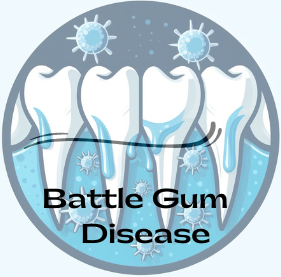
Have you ever wondered how your gums and your heart could effect one another in the health world? Seems like a wild idea, right? But there’s more to that daily flossing than just keeping your breath fresh. Turns out, what’s happening in your mouth could have some pretty real effects on your ticker.
The science behind this connection is quite fascinating. Studies have shown that gum disease, also known as periodontal disease, can actually influence heart health as well. It all comes down to the bacteria and inflammation in your gums potentially leading to problems with your heart. So, when your dentist nags you about flossing, it’s not just about oral hygiene—it’s also about staying heart-healthy!
Let’s take a look at some numbers to back this up. Research has consistently suggested that people with gum disease may be at a higher risk of developing heart disease. In fact, some researchers believe that having gum disease may increase the risk of heart disease by up to 20%. That’s a pretty staggering figure when you think about it.
Now, why exactly does this happen? Well, while we can’t see inside our mouths without a mirror, the inside world of bacteria and inflammation is quite active. When harmful bacteria from gums enter the bloodstream, they can trigger an immune response, causing inflammation that might affect the heart’s health in the long run.
So, what’s the big takeaway here? It’s simple—taking care of your oral health can actually be a huge part of taking care of your heart. We’re not talking about just brushing; it’s about a holistic approach to health that involves your whole body.
Causes and Risk Factors: Gum Disease as a Precursor to Heart Disease
Gum disease doesn’t just show up unannounced; it’s usually the result of specific culprits. Poor dental hygiene tops the list, giving unwanted bacteria a chance to thrive and cause trouble. When this bacterial gang builds up, inflammation follows, which not only damages gums but can also set the stage for heart issues. It’s like opening a door for issues to march right in.
Inflammation doesn’t really stay put. It can find its way into the bloodstream from your gums, potentially triggering other issues far from your mouth, affecting arteries and heart functions. This connection shows why keeping inflammation in check isn’t just about stopping gum pain; it’s also crucial for your heart.
There’s more to the tale, though. Lifestyle choices like smoking or skipping those twice-yearly dental check-ups? Not so great. Smoking, in particular, escalates risks by contributing to gum disease and heart problems alike, proving that the two are indeed linked through common bad habits.
Genetics also plays a part. If gum disease or heart problems run in your family, it may mean you have to be extra vigilant. But don’t worry too much—knowledge is power. Understanding what causes these problems helps in taking active steps to prevent them. Keeping an eye on these risk factors can go a long way in safeguarding your heart and mouth.
Taking charge of your health risk factors means you’ll want a routine check-up that’ll keep bacteria at bay and catch early signs of trouble. This means embracing good health habits, understanding your family history, and addressing lifestyle factors head-on, turning potential risks into manageable tasks.
Warning Signs: How to Detect and Prevent Gum and Heart Problems Early
Your body has its way of sending signals when something’s off, so let’s tune into those to catch gum and heart problems early. It all starts with recognizing the telltale signs of gum disease. Do you have bleeding gums while brushing or flossing? That’s a red flag. Do you have swelling, persistent bad breath, or gum recession? More signals that might mean trouble.
Why wait for issues to get alarming? Regular dental visits can be your great move to spotting these kinds of problems before they escalate. Dentists can identify the early stages of gum disease, even when everything seems just fine to you. They can guide you with advice tailored to what your mouth needs.
Addressing these warning signs leads to taking prevention seriously. Commit to a solid oral hygiene routine—brushing twice a day and flossing at least once daily. These aren’t just chores; they’re your first defense against gum disease and its linked health hassles. Don’t shy away from investing in quality dental tools. Electric toothbrushes and interdental brushes can make a difference in keeping every nook and cranny clear.
Early detection isn’t only about oral health. Paying attention to heart-related cues, like unexplained fatigue, chest discomfort, or shortness of breath, ties in here as well. If either gums or heart are acting up, it’s wise to reach out to health professionals who can head off problems at the pass.
Preventive measures are powerful, bridging that care between mouth and heart. They lay the groundwork for a lifestyle grounded in awareness and proactive health management. The key takeaway? Don’t wait. Embrace regular check-ups, both dental and medical, and set a sturdy foundation for long-term wellness.
Steps Toward Better Health: Integrating Oral Health into Your Heart Health Regimen
Health is all about finding balance, and your daily routine plays a big role in this balancing act. Let’s kick things off with oral hygiene habits that support not just a shiny smile but also a healthy heart. It might sound basic, but brushing your teeth at least twice a day and flossing every day is where it all starts.
Consider these daily practices as part of your heart health regimen. Why stop at brushing and flossing, though? Using an antibacterial mouthwash can help keep harmful bacteria, which link to gum and heart problems, at bay. It’s a simple step that can have significant impacts.
Diet also comes into play here. Eating a balanced diet rich in fruits, vegetables, and whole grains supports both oral and cardiac health. Crunchy fruits and veggies like apples or carrots not only provide vital nutrients but can also help preserve teeth structure and encourage saliva production, which naturally cleanses the mouth.
Beyond diet and oral care, regular physical activity supports heart health—and, indirectly, gum health by improving circulation and oxygen flow. It’s not about hitting the gym for hours but finding enjoyable ways to stay active daily, like walking, cycling, or even dancing.
Professional advice shouldn’t be overlooked. Schedule regular check-ups with both your dentist and your doctor. They offer professional insights into your health that you don’t even know. Following their guidance ensures both the mouth and heart stay in peak condition.
Incorporating these steps into your routine isn’t just about reacting to problems. It’s about adopting a proactive stance on your health, combining good habits with expert guidance to create a lifestyle that supports your total well-being.
Conclusion
Maintaining strong oral health plays a significant role in your overall well-being, particularly heart health. By recognizing the intricate connection between gum disease and heart disease, we’re empowered to take charge of our health by making informed decisions.
Understanding how inflammation from gum disease can impact our cardiovascular system highlights the necessity of a thorough dental care routine. Noticing warning signs early and acting promptly can stave off more serious health issues down the line.
Integrating daily habits that support oral hygiene can significantly benefit heart health. This means getting to grips with brushing, regular flossing, and throwing in some antibacterial mouthwash for a good measure. A heart-healthy diet compliments these habits perfectly.
Regular visits to both the dentist and doctor are crucial, as they can provide critical assessments and personal advice based on professional expertise. It’s a joint effort with professionals to ensure a healthier future.
By incorporating these practices into your everyday routine, you’re setting up a robust defense against diseases that affect both your gums and your heart. Good health is more than the absence of disease—it’s about living a lifestyle that fosters resilience and vitality.
“Here’s a little transparency: Our website contains affiliate links. This means if you click and make a purchase, we may receive a small commission. Don’t worry, there’s no extra cost to you. It’s a simple way you can support our mission to bring you quality content.”
